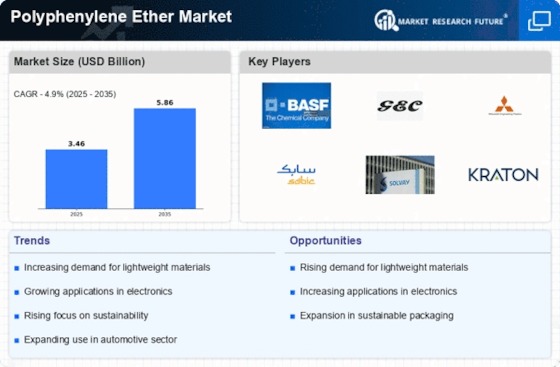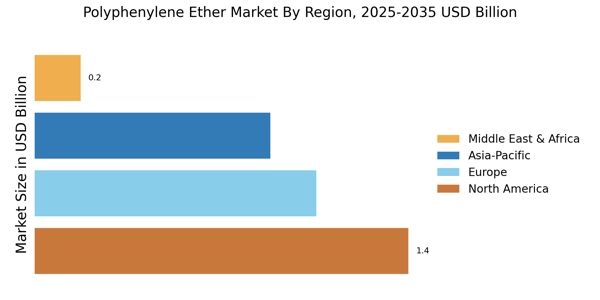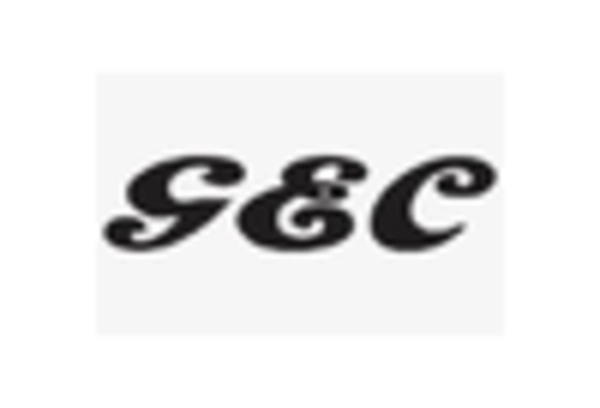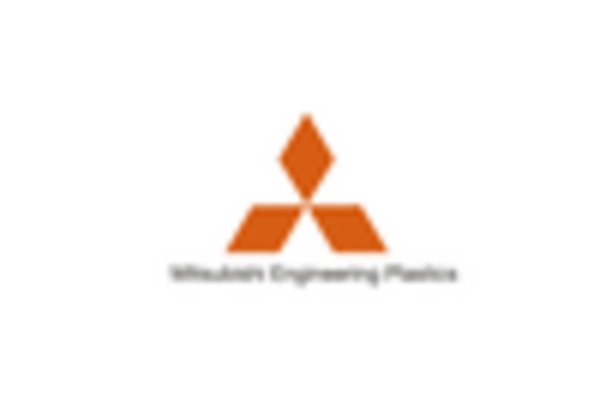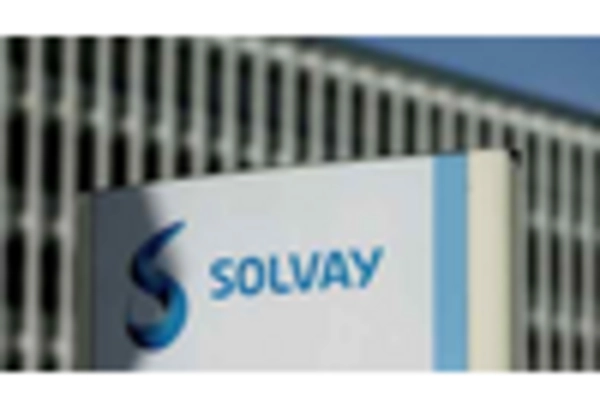Growing Applications in Medical Devices
The growing applications of polyphenylene ether in medical devices are emerging as a notable driver for the Polyphenylene Ether Market. With the healthcare sector increasingly focusing on high-performance materials that meet stringent regulatory standards, polyphenylene ether's biocompatibility and chemical resistance make it an attractive option for various medical applications. The market for medical devices is projected to expand at a compound annual growth rate of approximately 5.5%, indicating a robust demand for materials like polyphenylene ether. This trend suggests that as the healthcare industry evolves, the role of polyphenylene ether in medical applications is likely to become more prominent, further solidifying its market position.
Rising Demand for Lightweight Materials
The increasing emphasis on lightweight materials across various industries appears to be a pivotal driver for the Polyphenylene Ether Market. As manufacturers seek to enhance fuel efficiency and reduce emissions, the demand for lightweight components in automotive and aerospace applications is likely to surge. Polyphenylene ether, known for its excellent strength-to-weight ratio, is becoming a preferred choice. Recent data indicates that the automotive sector alone is projected to witness a growth rate of approximately 4.5% annually, further propelling the demand for polyphenylene ether. This trend suggests that the material's unique properties align well with the industry's shift towards sustainability and efficiency, thereby reinforcing its position in the market.
Increased Focus on Sustainable Practices
The heightened focus on sustainable practices across industries is emerging as a significant driver for the Polyphenylene Ether Market. As companies strive to meet regulatory requirements and consumer expectations for environmentally friendly products, the demand for sustainable materials is likely to rise. Polyphenylene ether, being recyclable and exhibiting low environmental impact during production, aligns well with these sustainability goals. Recent studies indicate that the market for sustainable materials is projected to grow by approximately 7% annually, which could lead to increased adoption of polyphenylene ether in various applications. This trend underscores the material's potential to contribute to a more sustainable future.
Expansion in Electrical and Electronics Sector
The ongoing expansion in the electrical and electronics sector is likely to significantly influence the Polyphenylene Ether Market. With the rise of advanced technologies such as electric vehicles and smart devices, the need for high-performance materials that can withstand heat and provide electrical insulation is becoming increasingly critical. Polyphenylene ether, with its superior thermal stability and electrical properties, is well-suited for applications in connectors, circuit boards, and other electronic components. Market analysis indicates that the electronics segment is expected to grow at a compound annual growth rate of around 5% over the next few years, suggesting a robust demand for polyphenylene ether in this domain.
Technological Innovations in Material Processing
Technological innovations in material processing are likely to play a crucial role in shaping the Polyphenylene Ether Market. Advances in manufacturing techniques, such as 3D printing and injection molding, are enabling the production of complex geometries and customized solutions that were previously unattainable. These innovations not only enhance the performance characteristics of polyphenylene ether but also reduce production costs and waste. As industries increasingly adopt these advanced processing methods, the demand for polyphenylene ether is expected to rise. Market forecasts suggest that the adoption of innovative processing technologies could lead to a growth rate of around 6% in the polyphenylene ether sector over the next few years.


